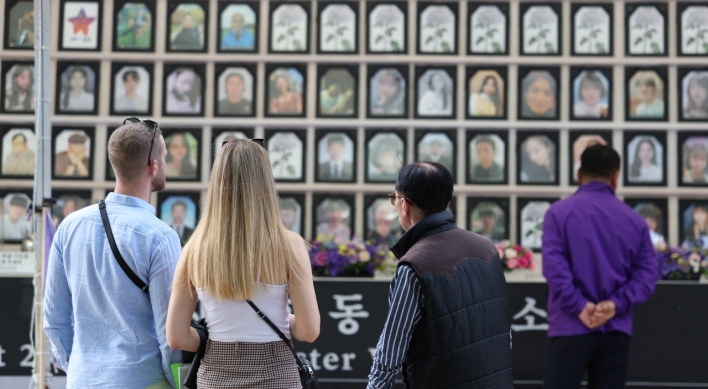[Editorial] Salaried workers' blues
Earned income tax revenue up 70% for 5 years, outpacing national tax
By Korea HeraldPublished : Feb. 16, 2023 - 05:30
The government collected 57.4 trillion won ($45.3 billion) in earned income tax last year.
The revenue increased 21.6 percent or 10.2 trillion won in a year. Compared with five years ago or 2017, it swelled 68.8 percent or 23.4 trillion won.
Revenues from overall national taxation and general income tax increased 49.2 percent and 49.4 percent, respectively, over the five-year period. Total withholding income tax levied on salaried employees increased much faster than both general income tax and national taxation in general. General income tax is imposed mostly on self-employed persons and privately owned businesses.
Obviously, this statistic amplifies dissatisfaction among middle-class salaried workers. They question whether the burden of tax for expanded fiscal expenditures including social welfare benefits under President Moon’s administration fell too heavily on them, compared with general income taxpayers.
The government says that the earned income tax revenue from salaried employees increased because the number of fully employed workers and their wage levels both rose over the five-year span.
The number of salaried employees who filed tax returns last year for income earned in 2021 was 19.95 million, about 1.94 million more than in 2017.
But about 7 million salaried employees were exempted from earned income tax because their income fell short of the minimum requirement for tax returns.
Considering this, it is reasonable to argue that most of the increased revenue of earned income tax came from those salaried individuals in the middle and upper middle classes who were not exempt from the tax.
However, if the workers accept their earned income tax as proper compared with their wage level, their dissatisfaction could be to some extent mitigated. One factor in this is whether their wages increased at a similar pace as earned income tax revenue.
According to the Ministry of Employment and Labor, the average take-home monthly pay rose 9.3 percent from 3.25 million won in 2017 to 3.55 million won in 2022. In a nutshell, earned income tax revenue increased nearly 70 percent, while their paychecks crawled up just 9 percent.
Salaried individuals’ tax burdens become heavier during times of high inflation, when real wages barely rise, because tax is imposed on nominal wages. This comes to them as an effective tax increase.
According to Statistics Korea, the average real income of urban workers in the third quarter of last year dipped 2.5 percent from a year earlier.
Last year, consumer prices rose 5.1 percent, the highest increase rate after 7.1 percent recorded in 1998 when Korea received help from the International Monetary Fund to resolve the shortage of foreign currency. Considering the record high inflation, it is likely that real wages went south last year. And yet the government collected 10.2 trillion won more in earned income tax than a year before.
Except for employees of large companies with deep pockets, most salaried workers are likely to keep on living an economically difficult life.
They break their backs coping with rising retail prices and hikes in utility fees. To make matters worse, sudden rises in interest rates have aggravated the life of hardship for those indebted members of the working class. In 2021, commercial banks’ mortgage rates moved around 2-3 percent a year but they shot up to the 7 percent level in the first half of last year.
Inflation also adds to the revenue of value-added tax that rises automatically as prices of goods and services are climbing. Increased value-added tax has an effect of reducing consumers’ disposable income, and the effect would be more painful to the working class than to the wealthy.
Obviously, social welfare benefits and support for economically disadvantaged people are necessary, but the need for tax equity and income support for the middle class is becoming urgent.
-
Articles by Korea Herald







![[Music in drama] Rekindle a love that slipped through your fingers](http://res.heraldm.com/phpwas/restmb_idxmake.php?idx=644&simg=/content/image/2024/05/01/20240501050484_0.jpg&u=20240501151646)


![[New faces of Assembly] Architect behind ‘audacious initiative’ believes in denuclearized North Korea](http://res.heraldm.com/phpwas/restmb_idxmake.php?idx=644&simg=/content/image/2024/05/01/20240501050627_0.jpg&u=20240502093000)








